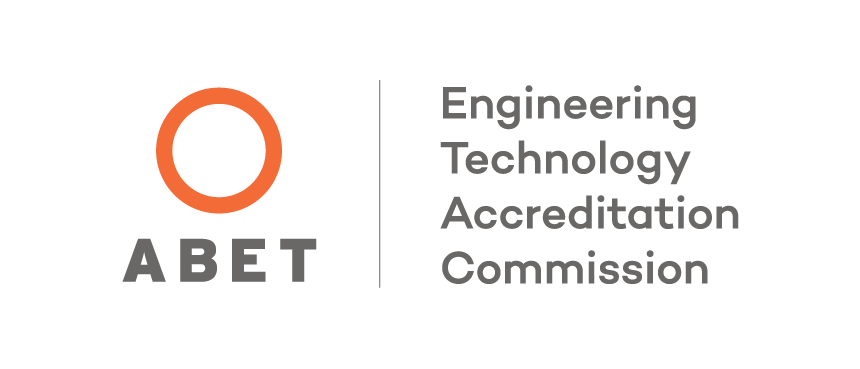Electronic Systems Engineering Technology
Electronic Systems Engineering Technology
Bachelor of Science in Electronic Systems Engineering Technology

2.5 Year Bachelor's Degree
124 Total Credits

2 Courses Per Term
5 Week Terms

ABET Accredited Program
Through the ETAC

Transfer Credits
Up to 93 Credits
Request InfoApply Now

2.5 Year Bachelor's Degree
124 Total Credits

2 Courses Per Term
5 Week Terms

ABET Accredited Program
Through the ETAC

Transfer Credits
Up to 93 Credits
Electronic Systems Engineering Technology Degree Overview
The Bachelor of Science in Electronic Systems Engineering Technology (ESET) degree program is accredited by ETAC of ABET, ensuring it meets globally recognized standards of quality and rigor in engineering technology education.
If you’ve ever wondered how robots “know” what to do, how factory lines stay synchronized, or how a device senses, decides, and responds—this program is about learning the real-world electronics behind those systems. You’ll start with fundamentals like circuits and programming, then move into digital systems, instrumentation, Programmable Logic Controllers (PLCs), embedded systems, and automation—ending with a senior project where you design and demonstrate a solution to an engineering problem.
A hands-on and applied program built for people who want usable skills, not just theory.
Plus, you can complete this degree program in as few as 2.5 years, preparing you to make an impact in the field sooner.
What You’ll Learn
Expect a balanced mix of “how it works” and “how to build/troubleshoot it,” including:
- Analog & digital electronics fundamentals
- Programming for engineering applications
- Instrumentation and measurement - how you test and verify systems
- Embedded/control systems and applied automation concepts
Programmatic Accreditation
 The Bachelor of Science in Electronic Systems Engineering Technology at the Virginia Beach and Newport News, VA campuses and Online is accredited by the Engineering Technology Accreditation Commission (ETAC) of ABET, www.abet.org, under the General Criteria and the Electrical/Electronic(s) Engineering Technology and Similarly Named Programs Program Criteria.
The Bachelor of Science in Electronic Systems Engineering Technology at the Virginia Beach and Newport News, VA campuses and Online is accredited by the Engineering Technology Accreditation Commission (ETAC) of ABET, www.abet.org, under the General Criteria and the Electrical/Electronic(s) Engineering Technology and Similarly Named Programs Program Criteria.
Possible Career Paths
Graduates of this program pursue many different career paths. Some of the most common are:
Electrical Engineer
Electrical Engineers design and maintain electrical systems that power buildings, equipment, and modern technologies. They create schematics, analyze performance, and ensure systems operate safely and efficiently.
Project Engineer
Project Engineers coordinate technical teams and project timelines to keep engineering initiatives on track. They manage resources, solve technical issues, and ensure projects meet scope, schedule, and quality goals.
Systems Engineer
Systems Engineers design and oversee complex systems by integrating hardware, software, and processes. They define requirements, manage risks, and ensure all components work together reliably and at scale.
Flexible Learning Environments
Our campuses provide an immersive classroom setting, interacting directly with professors and classmates in real-time. Benefit from face-to-face discussions, hands-on labs, and the immediate support of instructors.
Flexible and convenient, online learning allows you to study on your own time, from anywhere. Access lectures, lab simulations, and course materials online, collaborating with classmates through virtual forums and discussions.
To enhance flexibility, many campus courses are delivered via synchronous hybrid format, where students engage in both online learning activities and real-time interactions with instructors and classmates.
Electronic Systems Engineering Technology Curriculum
Bachelor of Science in Electronic Systems Engineering Technology
Featured Courses & Overview
Circuit Analysis
EET310
Students will learn about electrical circuits' analysis using circuit theorems; node-voltage, mesh current, Thevenin and Norton theorems.
Programmable Controllers and Robotics
EET331
Students are introduced to industrial control and statistical process control concepts. Sensor applications and Hands-on applications in programming and troubleshooting of Programmable Logic Controllers are emphasized.
Credit Hours
|
Course Categories
|
Description
|
37
|
Arts & Sciences
|
Courses which delve into both creative expression and the scientific world, shaping well-rounded thinkers.
|
52
|
Core Curriculum
|
Courses that provide an educational foundation, building essential skills across diverse subjects.
|
16
|
Concentration Courses
|
Specialized degree concentration courses are focused deep dives within your major, letting you become an expert in a specific niche related to your field.
|
10
|
Self Integration
|
These courses set you up for college success and beyond.
|
9
|
Electives
|
Enhance your academic journey and explore new interests with our elective courses, offering unique perspectives and enriching your educational experience.
|
124
|
Total Credit Hours
|
|
Certifications
ECPI University understands the power of certifications in today's dynamic technology field, and we believe enhancing your marketability is crucial.
To support your journey, ECPI offers discounted vouchers that significantly reduce the cost of certification exams for Fiber Optics Installer (FOI), Fiber Optics Technician (FOT), A+ Certification, Network+ Certification, and Security+ Certification.
Institutional Accreditation
 ECPI University is accredited by the Southern Association of Colleges and Schools Commission on Colleges (SACSCOC) to award associate, baccalaureate, and master’s degrees. ECPI University also offers credentials such as certificates and diplomas at approved degree levels.
ECPI University is accredited by the Southern Association of Colleges and Schools Commission on Colleges (SACSCOC) to award associate, baccalaureate, and master’s degrees. ECPI University also offers credentials such as certificates and diplomas at approved degree levels.
Questions about the accreditation of ECPI University may be directed in writing to the Southern Association of Colleges and Schools Commission on Colleges at 1866 Southern Lane, Decatur, GA 30033-4097, by calling (404) 679-4500, or by using information available on SACSCOC’s website (www.sacscoc.org).




 The Bachelor of Science in Electronic Systems Engineering Technology at the Virginia Beach and Newport News, VA campuses and Online is accredited by the Engineering Technology Accreditation Commission (ETAC) of ABET, www.abet.org, under the General Criteria and the Electrical/Electronic(s) Engineering Technology and Similarly Named Programs Program Criteria.
The Bachelor of Science in Electronic Systems Engineering Technology at the Virginia Beach and Newport News, VA campuses and Online is accredited by the Engineering Technology Accreditation Commission (ETAC) of ABET, www.abet.org, under the General Criteria and the Electrical/Electronic(s) Engineering Technology and Similarly Named Programs Program Criteria.  ECPI University is accredited by the Southern Association of Colleges and Schools Commission on Colleges (SACSCOC) to award associate, baccalaureate, and master’s degrees. ECPI University also offers credentials such as certificates and diplomas at approved degree levels.
ECPI University is accredited by the Southern Association of Colleges and Schools Commission on Colleges (SACSCOC) to award associate, baccalaureate, and master’s degrees. ECPI University also offers credentials such as certificates and diplomas at approved degree levels.
